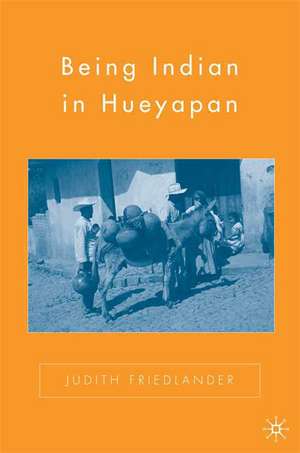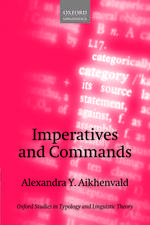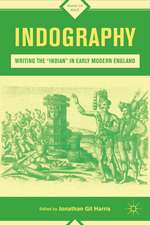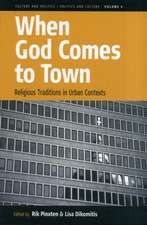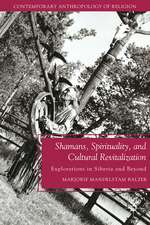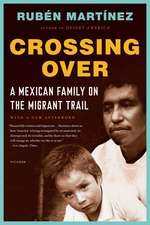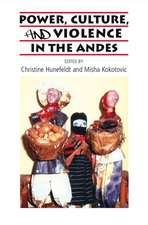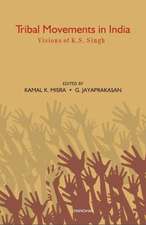Being Indian in Hueyapan: A Revised and Updated Edition
Autor J. Friedlanderen Limba Engleză Hardback – 17 sep 2006
| Toate formatele și edițiile | Preț | Express |
|---|---|---|
| Paperback (2) | 385.65 lei 6-8 săpt. | |
| Palgrave Macmillan US – 2006 | 385.65 lei 6-8 săpt. | |
| Palgrave Macmillan US – 25 mai 2007 | 420.41 lei 6-8 săpt. | |
| Hardback (1) | 385.65 lei 6-8 săpt. | |
| Palgrave Macmillan US – 17 sep 2006 | 385.65 lei 6-8 săpt. |
Preț: 385.65 lei
Nou
Puncte Express: 578
Preț estimativ în valută:
73.84€ • 76.17$ • 61.20£
73.84€ • 76.17$ • 61.20£
Carte tipărită la comandă
Livrare economică 21 februarie-07 martie
Preluare comenzi: 021 569.72.76
Specificații
ISBN-13: 9781403980120
ISBN-10: 1403980128
Pagini: 287
Ilustrații: XVI, 287 p.
Dimensiuni: 155 x 235 x 20 mm
Greutate: 0.43 kg
Ediția:2nd ed. 2006
Editura: Palgrave Macmillan US
Colecția Palgrave Macmillan
Locul publicării:New York, United States
ISBN-10: 1403980128
Pagini: 287
Ilustrații: XVI, 287 p.
Dimensiuni: 155 x 235 x 20 mm
Greutate: 0.43 kg
Ediția:2nd ed. 2006
Editura: Palgrave Macmillan US
Colecția Palgrave Macmillan
Locul publicării:New York, United States
Cuprins
Zeferina Barreto and her Family (1969-1970) The History of Doña Zeferina and her Family The History of Hueyapan What it Means to be Indian in Hueyapan Religion in Hueyapan The Role of the State in Post-Revolutionary Mexico: A New Period of 'Evangelization' in Hueyapan Cultural Extremists The Anthropologist and the Indians Being Indian Revisited
Recenzii
'When I read this book in a graduate seminar in 1982, it provoked passionate debate and critical engagement. How to gauge the cumulative ideological influence of colonialism, state building, and other powerful forces on the meaning of Indianness, and the socio-economic place of indigenous peoples, in Mexico? How to fully register this influence, without neglecting the generative processes of indigenous self-making and resistance? Especially with the new final chapter on neoliberal multiculturalism, Friedlander's answers to these questions are just as provocative, timely and vital to consider now as they were 25 years ago. There is no higher praise that can be bestowed on social science research than to affirm its longevity, its ability to link empirical particularity to the enduring, big picture problems of our times. Being Indian in Hueyapan is richly deserving of this praise.' - Charles R. Hale, University of Texas at Austin; President of the Latin American Studies Association 2006-07
'This is a very instructive book on one of Mexico's old, poor, now mostly trashed villages, the kind that urbane Mexicans keep reinventing as 'Indian,' or 'indigenous,' and keep exploiting however they can. In a poignant revision it combines the author's original work of 1969-70 (when she was 25), her mature reflections on her work and the village now, particularly the family she loved there and its new generations, and her critical take on self-serving anthropology, American andMexican. It carries sharp, strong arguments about the meaning of 'being Indian,' or 'indigenous,' and the confusion in Mexico (but not only there) over nationalism, ethnicity, belonging, and alienation, 35 years ago and now. It makes you see power's continual resort to 'culture' to justify exploitation.' -John Womack, Harvard University
'This is a very instructive book on one of Mexico's old, poor, now mostly trashed villages, the kind that urbane Mexicans keep reinventing as 'Indian,' or 'indigenous,' and keep exploiting however they can. In a poignant revision it combines the author's original work of 1969-70 (when she was 25), her mature reflections on her work and the village now, particularly the family she loved there and its new generations, and her critical take on self-serving anthropology, American andMexican. It carries sharp, strong arguments about the meaning of 'being Indian,' or 'indigenous,' and the confusion in Mexico (but not only there) over nationalism, ethnicity, belonging, and alienation, 35 years ago and now. It makes you see power's continual resort to 'culture' to justify exploitation.' -John Womack, Harvard University
Notă biografică
Since 1972, Judith Friedlander has taught Anthropology at SUNY Purchase, Hunter College/the Graduate Center of the City University of New York and the New School for Social Research.She has also served as an academic dean at these three institutions, most recently as dean of arts and sciences at Hunter College..
